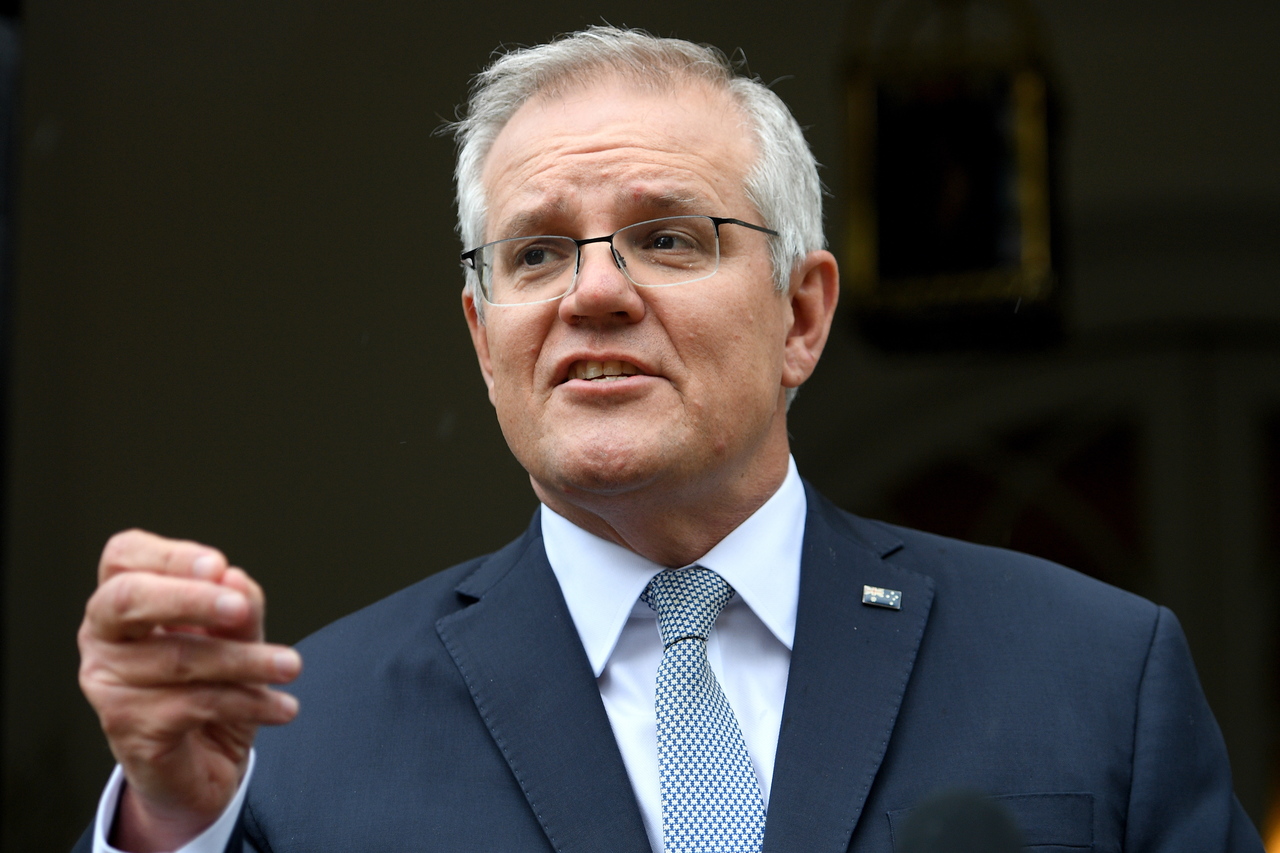Australia commits to net-zero emissions ahead of COP26 climate talks but lags on 2030
Sign up now: Get insights on Asia's fast-moving developments

Mr Scott Morrison has frequently ruled out taxes for polluters in Australia.
PHOTO: EPA-EFE
SYDNEY (BLOOMBERG) - Australia, one of the world's top per-capita polluters, on Tuesday (Oct 26) finally agreed to a plan to zero out its carbon emissions by 2050 but fell short of committing to harder short-term targets demanded by climate activists.
Prime Minister Scott Morrison announced the target days before he is scheduled to head to Europe for Group-of-20 talks and then the COP26 climate summit in Glasgow.
It follows a new round of fractious domestic debate on climate policy, an issue that has riven Australia's politics for more than a decade and comes after pressure from allies including the United States on Australia to show more urgency in action to limit global warming.
"We will set a target to achieve net zero by 2050, and have a clear plan for achieving it," Mr Morrison said in an e-mailed statement on Tuesday. "We won't be lectured by others who do not understand Australia. The Australian way is all about how you do it, and not if you do it. It's about getting it done."
The government will stick with 2030 goals that have been criticised by activists and business leaders alike as too weak, adding to the sense that timid pledges from developed nations are stifling prospects for major progress at the climate talks.
Mr Morrison on Tuesday reiterated that Australia was on track to "meet and beat" its target, forecasting a cut of as much as 35 per cent by 2030 from 2005 levels compared with the official commitment for a 26 per cent to 28 per cent reduction.
"Investors are ready to invest billions, not millions, in Australia's transition to net zero," Ms Rebecca Mikula-Wright, the chief executive officer of the Investor Group on Climate Change, said in a statement. "Australia not updating its 2030 target in line with commitments under the Paris Agreements is of deep concern to investors."
Australia is one of the top suppliers of fossil fuels, and the sector accounts for almost a quarter of its export earnings. The nation is being looked at to help show leadership that will encourage developing countries to step up their efforts. Saudi Arabia, the biggest oil exporter, on Saturday pledged to a goal to hit net zero by 2060.
Mr Morrison has frequently ruled out taxes for polluters, and backed the country's top emitters to devise the best solutions to help Australia hit net zero. On Tuesday, he said new coal-fired power stations could still potentially be built under his plan, with the fuel responsible for the bulk of the nation's electricity generation.
That is a blow for COP president Alok Sharma, who has struggled to win momentum for his ambition to "consign coal to history".
Nations like Australia and China, which is lifting coal output to ease an energy crisis, have resisted calls to more quickly phase out their own consumption of the fuel.
While every Australian state and territory - and key trading partners China, Japan and South Korea - have committed to net-zero emissions, a national target is politically complicated for Mr Morrison, who must hold elections by May and trails the main Labour opposition in opinion polls.
Lawmakers within the National Party, the junior member of Australia's governing coalition, have raised concerns over the threat to rural jobs, particularly in coal-mining communities, from an energy transition and demanded a series of concessions in return for their support.
The Australian newspaper reported that the Nationals had received a guarantee that the government would take no action to pursue a methane target.
The US and the European Union have been seeking to use COP26 to announce that at least 35 countries joined a global pact to cut methane emissions.


